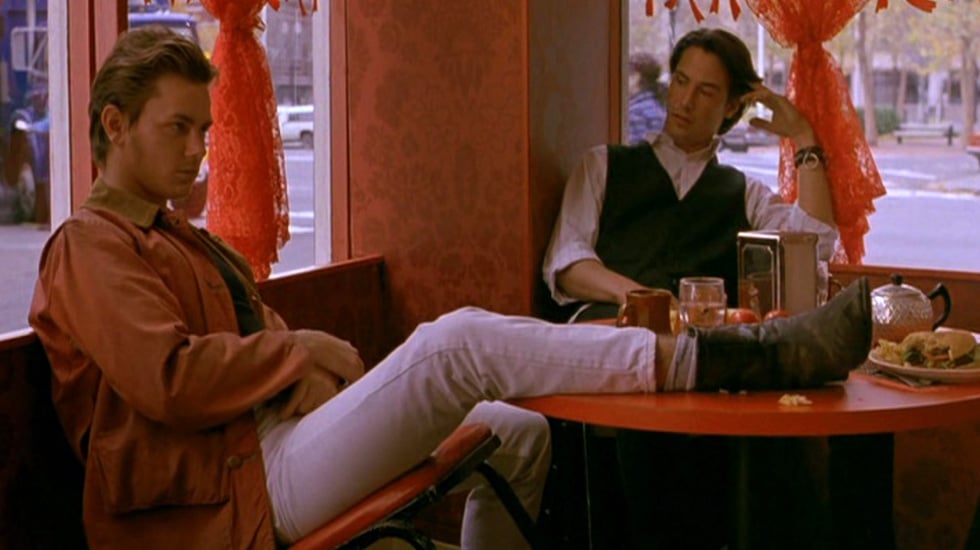For Pride Month, we highlight the work of America’s poet laureate for dirtbags, dreamers, and disaffected youth.
In Gus Van Sant’s world, the true romantic heroes are those polite society has deemed undesirable, like River Phoenix’s narcoleptic hustler in My Own Private Idaho, or Matt Dillon’s career criminal heroin addict in Drugstore Cowboy. Even Joaquin Phoenix’s teenage murderer in To Die For comes off as inexplicably, uncomfortably dreamy, his lust-glazed eyes all but filling the screen. Van Sant finds something beautiful in these broken boys without glorifying the less than savory things that they do.
To look at Van Sant’s filmography is to see a filmmaker who rarely tries the same thing more than once, regardless of how successful it is. He’s done black comedy (the aforementioned To Die For), biopics (Milk), horror (the ill-advised shot for shot remake of Psycho), white savior dramas (Finding Forrester), romances (Restless, and to a certain extent, My Own Private Idaho), mysteries (Sea of Trees), and whatever the hell Even Cowgirls Get the Blues was supposed to be. He could have easily, understandably sat back and directed six more versions of Good Will Hunting, but instead went on to direct a trilogy of low-budget indie films inspired by, respectively, a murdered hiker, the Columbine shootings, and the death of Kurt Cobain. In refusing to stick with one genre for very long, he’s allowed his work to remain fresh and fluid.

Curiously, despite its gradual acceptance in mainstream pop culture, Van Sant has moved further away from LGBTQIA themes in his films in recent years. It could simply be because he feels there’s not much more he has to say on the subject, which of course, is his right. Nevertheless, it’s a bit disappointing, because his portrayals of gay characters are singularly sensitive and thoughtful, without turning them into objects of curiosity for a largely straight audience. Uma Thurman’s lesbian utopia in the baffling Even Cowgirls Get the Blues is refreshingly portrayed without a slobbering hetero male gaze in mind. Harvey Milk could have easily come off as a tragic, sexless gay martyr, but thanks to Van Sant’s direction and a career-best performance by Sean Penn, he’s feisty, prickly and frustrating at times. He’s allowed to be a human being.
We hope to cover the hits, right down to Matt Damon’s adorable Boston accent in Good Will Hunting, and the misses (including Joaquin Phoenix’s terrible red wig in Don’t Worry, He Won’t Get Far on Foot) with the same insight and depth as Van Sant affords his characters. Even in his movies that don’t end up working, there’s never a sense of going through the motions, and in an industry that often values sameness over creativity, that should be celebrated.
Read more of our coverage of the films of Gus Van Sant below:
Mala Noche: A bad night makes for an auspicious beginning
“Drugstore Cowboy” found beauty in the gutter
Ambition is the eighth deadly sin in “To Die For”
Reclaiming the queerness of “Even Cowgirls Get the Blues”
“My Own Private Idaho” searches for queer freedom
“Elephant” forced us to see the normal inside the horrific
From death to birth, “Last Days” showed Kurt Cobain fade from man to myth
“Good Will Hunting” was Gus Van Sant’s big swing for the normies
The quiet realism of “Paranoid Park” showed Gus Van Sant at his indie best
Gus Van Sant’s “Milk” has soured with time
The Manic Pixie Dream Girl became a nightmare in the insufferably twee “Restless”